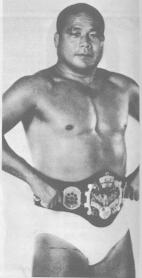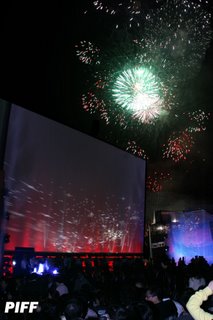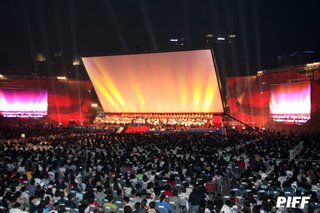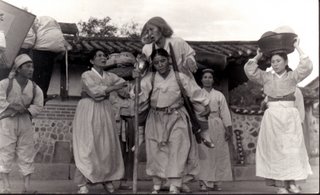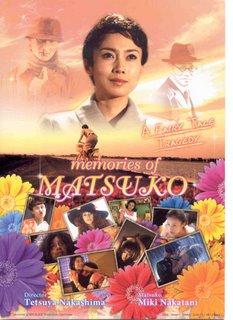Movies about gambling have given us some great stories over the years -- Paul Newman's THE HUSTLER, Matt Damon in ROUNDERS, Chow Yun-Fat in GOD OF GAMBLERS... Tom Cruise and Newman again in THE COLOR OF MONEY. (And, of course, there are plenty of movies about the gambling business, Las Vegas and the like, CASINO, BUGSY, THE STING, but I am referring more to movies about gambling itself, about the psychology of gambling, and not so much about movies that use gambling as a backdrop to tell another story).
So I was pretty interested in Choi Dong-hun's stylish card-shark movie, TAZZA: THE HIGH ROLLERS (also known as WAR OF FLOWER, before CJ Entertainment wisely changed its English name). (And, yes, I am a month late here, but I finally saw the movie last weekend). Much like Choi's first film, THE BIG SWINDLE, TAZZA offered oodles of style, but unfortunately, it did not offer much more than that, as an inspired opening soon gave way to cliche.
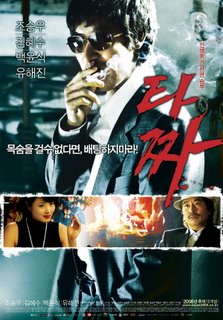
TAZZA certainly has plenty of style. Everyone seems to be dressed in eye-popping colors, with kind of an over-the-top '70s garish thing going on (but in a good way). And the music is perhaps the best movie soundtrack music I have ever heard in a Korean film. Just avoiding the usual Japanese snorefest or Korean bombast is a step in the right direction, but this really was first rate. Sexy, slinky, totally fit the mood.
The story, however, does not measure up to the style. Here is how CJ Entertainment described the film:
Goni (Cho Seung-woo) leads a boring life working at a small furniture factory. One day he becomes a victim of a con game and loses his family’s fortune. Running away from home, Goni wanders from town to town. By fate, he meets Pyeong (Baek Yoon-shik) who is one of 3 Tazzas (a master Hwatu card player). Under Master Pyeong’s tutorage, Goni aims to also become a Tazza. Nothing is what it seems and no one is to be trusted in the world of high rollers.
So, what do we have? Guy dresses bad, is a weakling and loses at cards. Then he learns from an expert, learns how to fight and starts dressing really well (or at least really flashy). And... that's about it. Emasculated loser becomes Mr. Big. Nothing particularly wrong with this story, but it is one we have all seen a thousand times before.
There is, of course, a twist or two... none of which thrilled me. Although the train sequence toward the end was pretty amusing (I will not spoil it, though).
My biggest complaint is that the movie never really lets us into the game of
hwa-tu, never really lets us into the mind of the players or the dynamics of the game. We see Goni learning how to cheat a lot, but not much else. He learns to deal from the bottom of the deck, how to keep track of the shuffle and a whole bunch of tricks, but we do not learn much about the actual game (an automatic card shuffler like many casinos use these days would pretty much kill this movie). I'm no expert at hwa-tu, but I wonder if the game is inherently limiting in how much drama you can get out of it.
As for the acting... Baek is, as usual, very good. Cho is mostly okay, too. And Kim Hye-soo is surprising good most of the time.
So, to sum up, TAZZA is a run, stylish romp, but do not expect a great story. It was not a terrible story, but it is a little disappointing because it easily could have been so much better.
If you are interested in the game of hwa-tu, there is an online DOS version available
here. Unfortunately, www.mrhwatu.com seems to be blocked in Korea. Lots of information and links
here.



